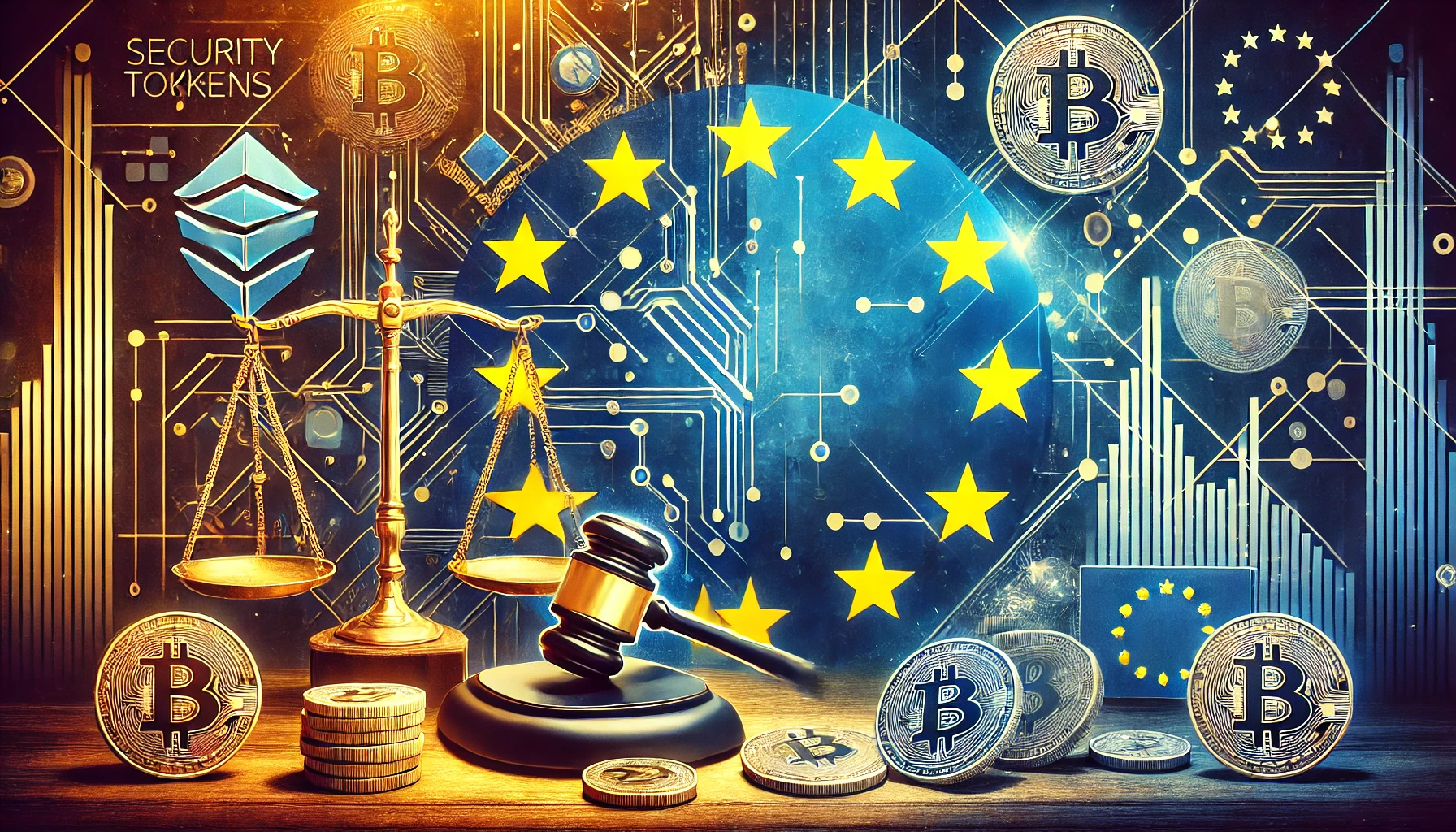Have you wondered how tokenization can revolutionize asset investment?
If so, this article is for you!
Here we will explore in depth how the issuance of security tokens is regulated in Europe, making sure you understand everything you need to invest with confidence and security.
What is tokenization and why is it important?
Tokenization is the process of converting rights to an asset into a digital token on a blockchain.
This makes it possible to fractionalize the ownership of assets such as real estate and works of art, making them more accessible and liquid.
But how are these tokens regulated when they represent financial securities?
European Regulatory Framework
Key Regulatory Authorities
In Europe, several authorities play a crucial role in the regulation of security tokens:
- European Securities and Markets Authority (ESMA): Improves investor protection and promotes stable and transparent financial markets.
- European Banking Authority (EBA): Builds a single regulatory and supervisory framework for the EU banking sector.
- European Central Bank (ECB): The central bank of the EU countries that have adopted the Euro.
Comparative European Regulations
Regulations on tokenization vary among European countries, although all seek to harmonize their laws with EU guidelines.
Some key regulations include:
– Markets in Financial Instruments Directive II (MiFID II): Regulates securities markets, ensuring transparency and protecting investors.
– Prospectus Regulation: Requires the publication of a prospectus when offering securities to the public or applying for admission to trading on a regulated market.
– Sustainability Disclosure Regulation in the Financial Services Sector (SFDR): Requires disclosure of sustainability-related information.
Legal Compliance in the Issuance of Security Tokens
Anti-Money Laundering (AML)
Preventing money laundering is critical.
AML regulations require tokenization platforms to implement rigorous processes to verify the identity of their users and monitor suspicious transactions.
MiFID II compliance
To operate legally, issuers of security tokens must comply with MiFID II, which includes:
– Pre and Post-Trading Transparency: Information available on transactions before and after execution.
– Investor Protection: Ensure that investors understand the associated risks and are treated fairly.
Data Protection (GDPR)
The protection of personal data is essential in any financial transaction.
The EU’s General Data Protection Regulation (GDPR) imposes strict requirements on how users’ personal data is handled and protected.
Investors Guide
Risk Assessment
Investing in security tokens can offer high returns, but it also carries significant risks.
It is essential to carefully evaluate projects, research equipment and understand the applicable regulatory framework.
Selection of Reliable Platforms
Choose platforms that comply with European regulations and offer full transparency in their operations.
Look for those that have passed security audits and have a solid reputation in the market.
Understanding Rights and Obligations
Before investing, make sure you fully understand the rights and obligations associated with security tokens, including dividends, voting rights and redemption procedures.
Examples of Regulation in European Countries
Germany
In Germany, the BaFin (Federal Financial Supervisory Authority) regulates security tokens under the Securities Act (WpHG).
Issuers must publish an approved prospectus and comply with AML and KYC (Know Your Customer) regulations.
France
The Autorité des Marchés Financiers (AMF) in France has taken a proactive approach to tokenization.
Security tokens are considered financial instruments and must comply with MiFID II regulations.
In addition, France has implemented a specific framework for ICOs under the PACTE Law.
Switzerland
Although not part of the EU, Switzerland is relevant for its advanced fintech regulation.
FINMA (Swiss Financial Market Supervisory Authority) classifies tokens into three categories: payment, utility and asset-based.
Security tokens are regulated as securities, requiring the issuance of prospectuses and compliance with AML rules.
United Kingdom
Despite Brexit, the UK remains a key player.
The Financial Conduct Authority (FCA) regulates security tokens as securities under the Financial Services and Markets Act.
Prospectus approval and compliance with AML and KYC rules are required.
Spain
In Spain, the Comisión Nacional del Mercado de Valores (CNMV) supervises security tokens.
They are considered financial instruments and must comply with MiFID II and the Prospectus Regulation.
The CNMV has published guidelines to help issuers navigate the regulatory framework.
Challenges and Opportunities
Regulatory Challenges
The rapid evolution of blockchain technology presents challenges for regulators who must balance innovation with investor protection.
The fragmentation of regulations at the national level within the EU also adds complexity.
Growth Opportunities
Despite the challenges, tokenization offers tremendous opportunities to democratize access to investments, increase asset liquidity and improve market efficiency.
Conclusion
Tokenization regulation in Europe is a constantly evolving field, and understanding it is crucial for issuers and investors alike.
Complying with European regulations, ensuring transparency and protecting investors are key pillars for success in this emerging market.
If you are considering investing in security tokens, make sure you do your due diligence and choose platforms that meet the highest standards of legal compliance.
This article has addressed the key regulatory and compliance aspects of issuing security tokens in Europe, providing essential guidance for those interested in this innovative sector.
If you have further questions or need specific advice, please do not hesitate to contact our experts.
You can download the knowledge base of this article and check its veracity at this link.

